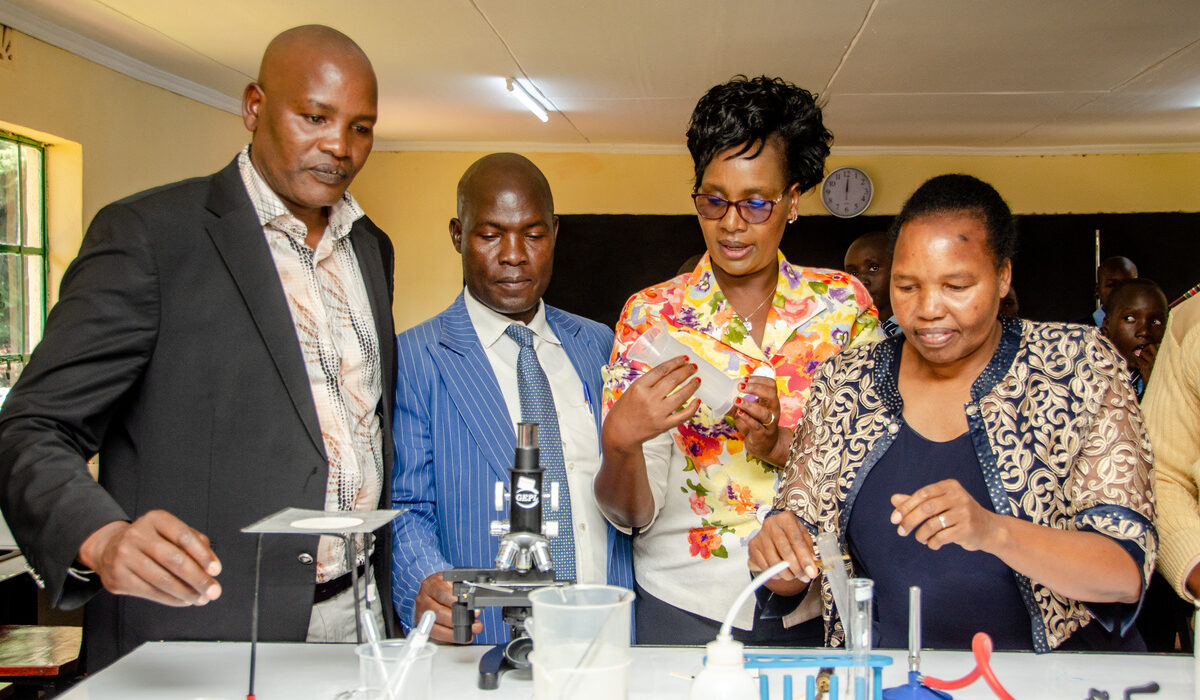Eastern Produce Kenya (EPK) has officially commissioned eight newly upgraded science laboratories across junior schools in Nandi County, following a significant investment of KSh 16 million. This initiative is part of EPK’s ongoing commitment to enhancing education in the region, particularly in the areas of science, technology, engineering, and mathematics (STEM). By improving access to quality STEM education, EPK aims to build a stronger foundation for local learners in these critical fields.
Three of the beneficiary schools, Khartoum Junior School, Kipchamo Junior School, and Kipsitoi Junior School, are situated within EPK’s tea estates. The remaining five schools—Septon Junior School, Kamarini Junior School, Chepkunyuk Junior School, Nandi Hills Township Junior School, and Cheptabach Junior School—are neighboring community institutions that also received the upgraded laboratories.
During the commissioning event, EPK Company Director Mrs. Leah Kibii Chirchir emphasized the company’s dedication to improving the welfare of the communities and the environments where it operates.
“Four years ago, EPK, in partnership with local stakeholders, built the first science laboratory at Savani Secondary School, and we’ve since witnessed a remarkable improvement in examination results, particularly in science subjects. For instance, in 2020, after the laboratory was established, two students from the school transitioned to university. This number increased to four in 2021, eight in 2022, and 14 in 2023,” she remarked.
“With today’s commissioning of additional laboratories for junior schools, we are confident that this will significantly support the government’s Competency-Based Curriculum (CBC), which aims to nurture talent and equip our children with practical skills in critical thinking, problem-solving, creativity, and communication,” Mrs. Chirchir added.
EPK has a longstanding commitment to investing in community education, continuously working with various partners to align its projects with the needs of both schools and students. The company recently launched a secondary school scholarship program aimed at empowering high-achieving students by providing them with opportunities to pursue their educational goals. The initiative has already awarded full scholarships to three students—two boys and one girl—at a total cost of KSh 2 million.
Mrs. Chirchir further highlighted the broader impact of education, stating, “Education is our investment in the future, contributing to social stability, improved health, livelihoods, and long-term economic growth. Our goal is to catalyze inclusive and quality education and promote lifelong learning opportunities in our communities.”
EPK is actively working towards achieving Sustainable Development Goal 4, which focuses on ensuring quality education. The company’s initiatives include providing free education to the children of its employees through bursaries, as well as establishing and improving the quality of schools within and around its plantations. Since 2019, EPK’s education projects have benefited over 60,000 learners, with investments exceeding KSh 30 million.
Currently, EPK has established 15 schools within its estates and remains committed to creating a positive impact on the educational landscape and the broader community. The company supports students by providing access to quality education and equal opportunities.
In addition to its work in schools, EPK has supported Early Childhood Development Education (ECDE) centers with appropriate classroom furniture that fosters learning. The company has also enhanced digital literacy by donating computers to schools and assisting in the establishment of computer labs. These facilities not only aid in learning but also help schools with administrative tasks such as tracking student performance and setting internal assessments.
Furthermore, EPK is addressing gender equality in education by supporting adolescent girls and boys with life skills education and menstrual hygiene products. This initiative has been instrumental in improving the school attendance of girls, helping to close the gender gap in education.





